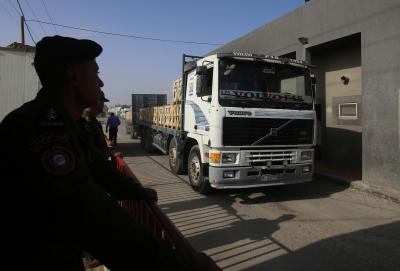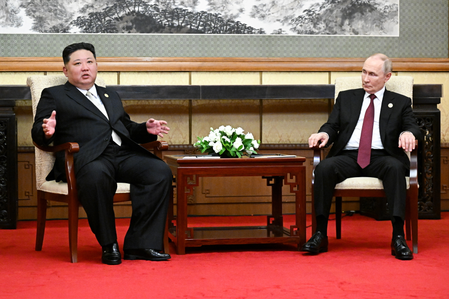
United Nations, July 12 (IANS) The fuel crisis in Gaza remains acute even though Israeli authorities allowed 75,000 liters in for two days in a row, UN humanitarians said.
Hundreds of thousands of liters of fuel are required daily for relief and infrastructure operations, the UN Office for the Coordination of Humanitarian Affairs (OCHA) has said. The fuel blockade lasted more than four months.
OCHA, while calling the second day’s fuel allowance a positive development, said the amount was only a small portion of what is required to sustain life-saving operations, Xinhua news agency reported.
“To be very clear: fuel is running out in Gaza,” the office said. “If the current limits are not lifted immediately so that greater volumes can be brought in regularly, more services will go dark.”
OCHA said unimpeded, safe access inside Gaza is urgently needed.
UN teams were able to provide some hospitals with fuel only in the south, because Israeli authorities denied their attempt to transport fuel to the north.
“OCHA warns that such denials are life-threatening, with hospitals in the north on the verge of shutting down,” the office said. “Fuel is also running out for ambulances, water treatment facilities and many other essential services, all of which are at risk of collapsing.”
The fuel shortage is only one of many challenges facing civilians in the Gaza Strip. OCHA said that every day without a ceasefire brings more preventable deaths in Gaza, with dying children and hungry people shot while trying to reach the trickle of aid allowed through the Israeli fence.
Out of 15 attempts to coordinate movements with the Israeli authorities Thursday, only six were fully facilitated, five were denied outright, and four were initially approved but then faced obstacles on the ground, the office said. Critical missions like evacuation of vulnerable people from high-risk areas, retrieval of vehicles and spare tires, and assessment of medical equipment could not be accomplished.
The facilitation of movements also needs to be timely.
OCHA said Israeli authorities denied a request Wednesday to reach a part of Gaza City where 18 injured people were trapped under rubble. By the time the mission was finally allowed through Thursday, no one was found alive.
The office said the distribution of tents cannot even be attempted as stocks are fully depleted, and Israeli authorities have blocked the entry of any shelter materials for more than 130 days.
Active hostilities and insecurity continue to put civilians at risk, including aid workers.
OCHA said that on Wednesday and Thursday, five airstrikes hit a few hundred meters from aid workers, including UN staffers. Fortunately, no aid workers were injured. Also, members of the Red Cross and Red Crescent societies were shot at and wounded on their way to help a colleague who had been injured and unreachable since last Friday. In all cases, their movements had been coordinated with the Israeli authorities.
Stephane Dujarric, chief spokesman for UN Secretary-General Antonio Guterres, updated information released earlier Friday by the UN Human Rights Office.
“They tell us that 819 Palestinians were reportedly killed while trying to get food in Gaza,” Dujarric said. “And the breakdown, according to our human rights colleagues, is that 634 of them were killed in the vicinity of the Gaza Humanitarian Foundation (GHF) distribution points, 185 died close to humanitarian aid convoys, including some run by us.”
He said the data was collected between May 27, when the GHF operation began, and July 10.
“The data is based on information gathered by our human rights colleagues through various reliable sources, including medical, human rights and humanitarian organizations,” Dujarric said. “All of those numbers highlight the need for independent investigations into why people are being killed while just trying to access aid.”
The new US-run, Israeli-backed GHF operations differ markedly from the established routines of the UN and its humanitarian partners.
Israel alleged that the UN aid distribution system was compromised by members of Hamas hijacking food shipments for their use.
OCHA said the GHF installed in or adjacent to military zones four aid distribution centers for all of Gaza that were marked by barbed wire-fenced approach lanes for civilians. By contrast, the established UN-led international aid system’s method was to deliver relief to hundreds of communities.
The rush of hungry Gazans following aid availability announcements for the four GHF centers, after sometimes walking miles to a hub, apparently triggered gunfire from nervous GHF security forces.
The traditional international aid organizations do not work with the GHF.
Dujarric has repeatedly told reporters that the world body is not anti-GHF, that it merely continues to uphold the international humanitarian aid organizations’ standards of humanity, impartiality, neutrality and independence.
“A food distribution system where people routinely, routinely get killed while trying to get the food is not a humanitarian operation,” said the spokesman.
–IANS
int/rs




